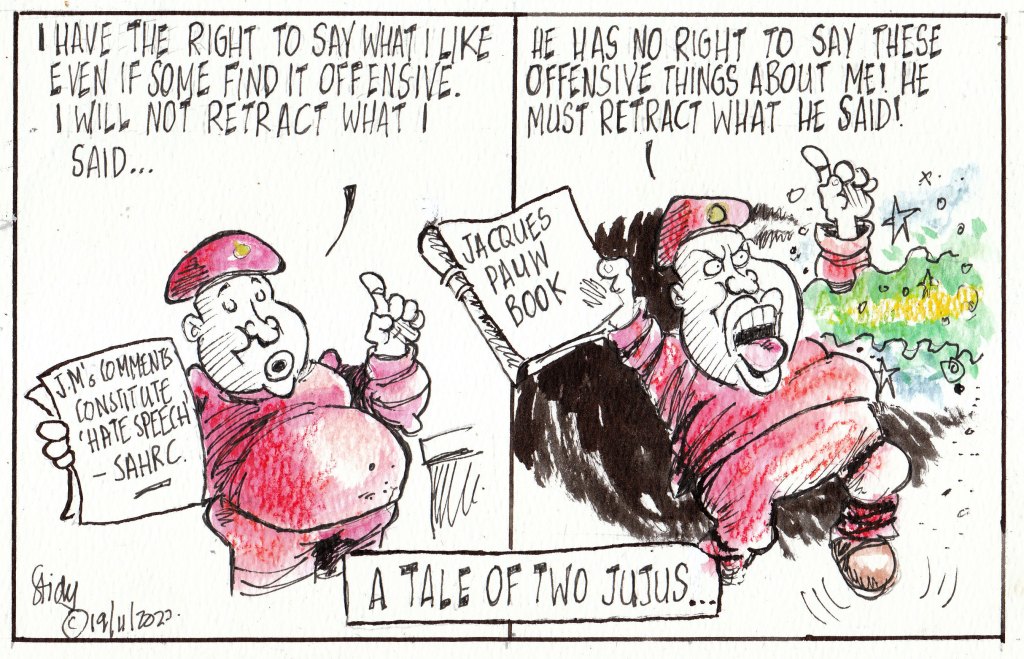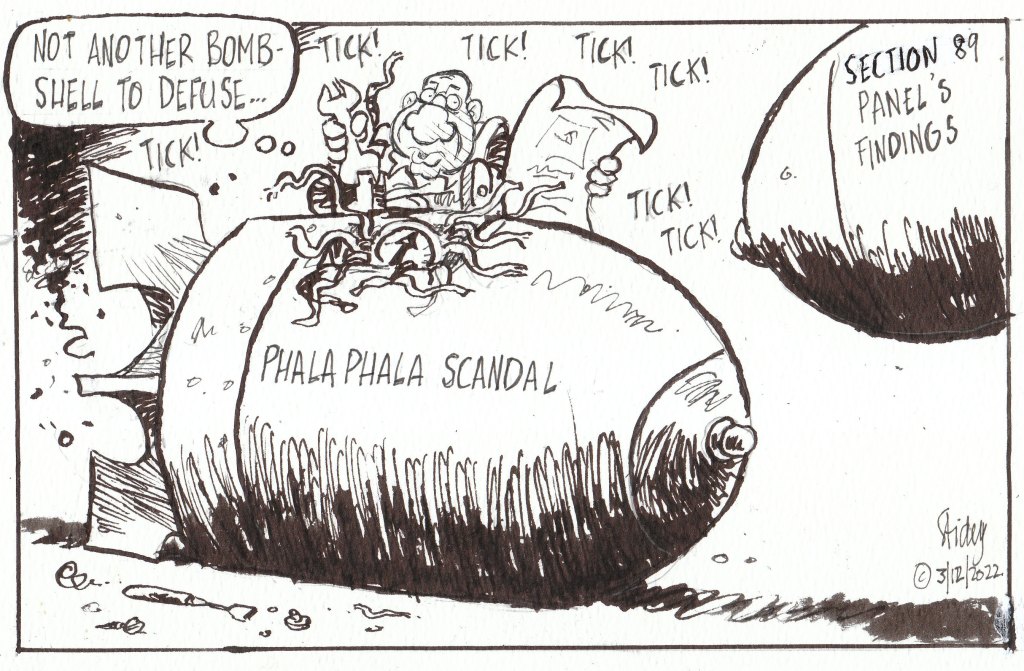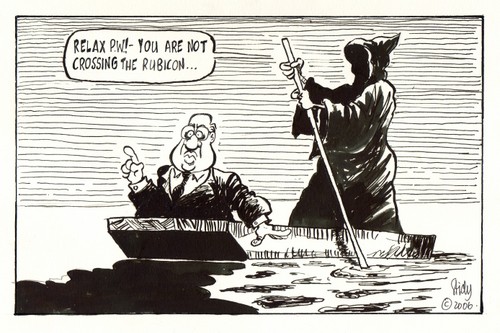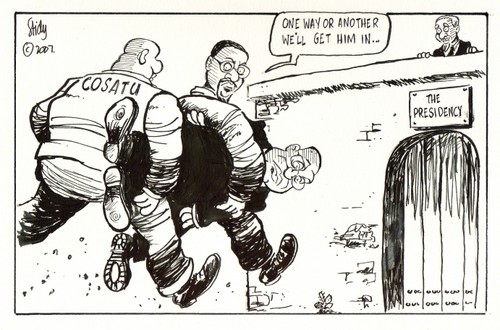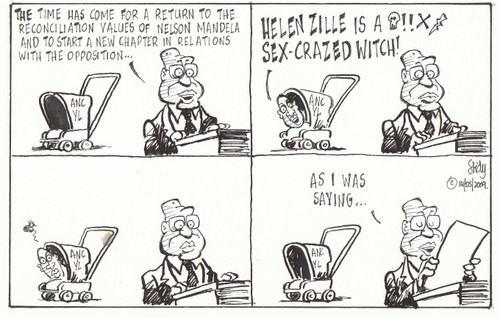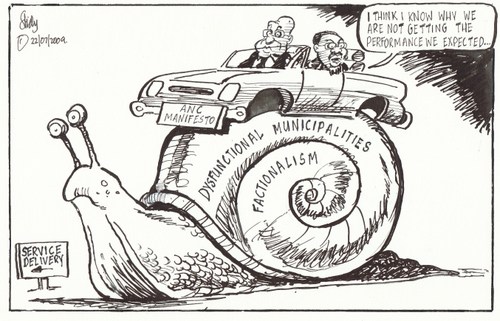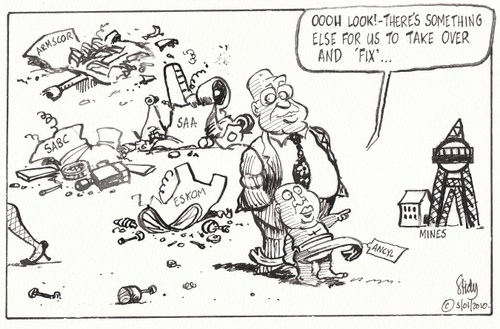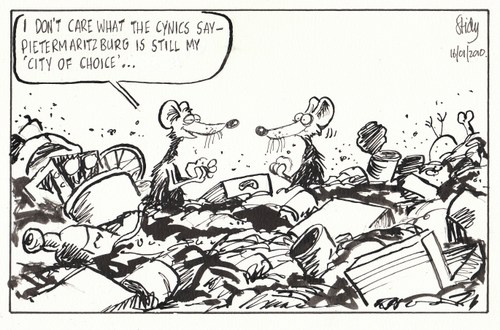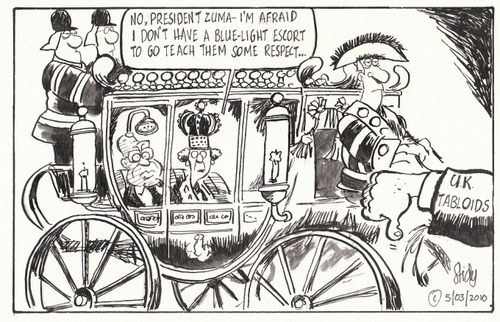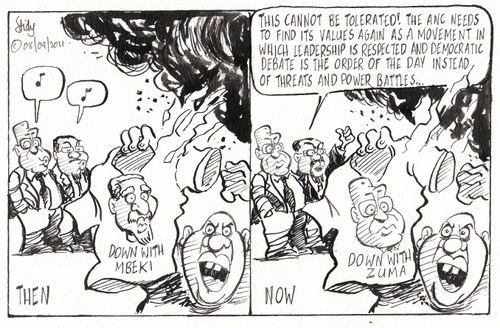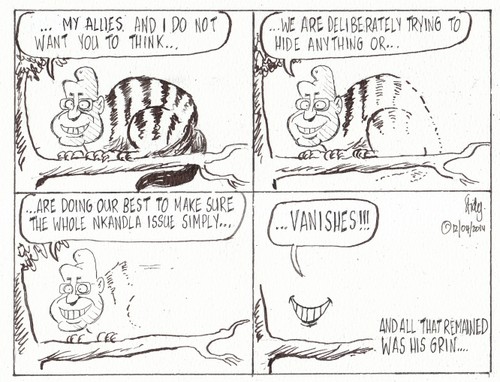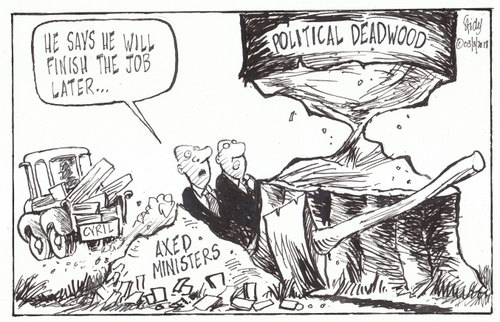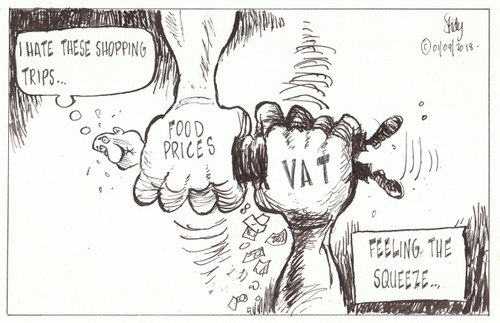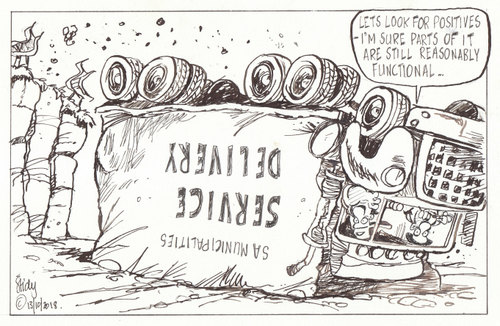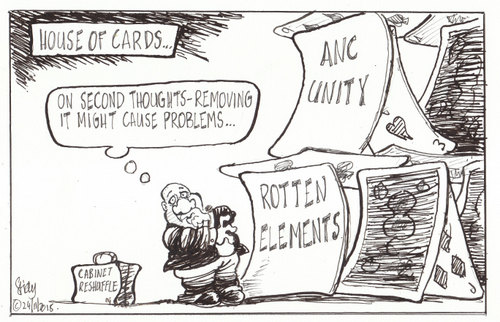
published by Tafelberg
Ever since he first entered politics, Julius Malema has – like Donald Trump in America – been a divisive and controversial figure, a fact he has been only too happy to exploit to his advantage. Loathed by one section of the public, worshipped by another, over the years, a great deal of speculation has whirled around who he is and what drives his ambition. Many questions have also arisen as to how he has been able to underpin his lavish lifestyle. In this compelling, convincing and meticulously researched book, investigative reporters Micah Reddy and Pauli Van Wyk tear away the veil to reveal the unsettling truth.
Although not intended as a biography (Malema, unsurprisingly, refused to have anything to do with the authors), the book does give a brief resume of his career. Brought up in poverty, Malema became politicised at an early age. At school, he did not do well academically, although he would later explain this away by saying it was because he was too busy with politics. His less-than-stellar academic performance in no way dampened his unwavering thirst for power. He quickly made his presence felt. His personal charisma and larger-than-life personality went hand in hand with an instinctive feel for the masses which saw him rapidly rise through the political ranks until he eventually became president of the ANC Youth League.
As a member of the new elite, Malema openly displayed the self-regard and sense of entitlement that has become the trademarks of far too many of post-colonial Africa’s leaders. Like many others, too, he would use his new position to benefit from government tenders; in his case, mostly in Limpopo.
Malema was initially a fervent supporter of Jacob Zuma, vociferously defending the then Deputy President when he was charged with rape and playing an important role in his campaign to unseat Thabo Mbeki as president of the ANC. His outspokenness soon got him into trouble with the ANC hierarchy, however, and, despite his avowals of permanent support, he would later turn on Zuma after he expelled the young firebrand from the ANC for fomenting divisions and bringing the party into disrepute (ironically, Zuma would later suffer a similar fate).
Determined not to be silenced, Malema responded by forming the Economic Freedom Front (EFF), which advocated the radical redistribution of land and the nationalisation of mines. He was joined by his sidekick and former deputy president of the ANCYL, Floyd Shivambu, who would also become implicated in his share of shady financial and business activities (Shivambu would later deal a big blow to the EFF when, in a headline-grabbing move, he defected to Zuma’s newly formed MK Party. He did not last long there). As the undisputed leader and dominant member of the party, Malema was now able to unleash his demagogic talent freely.
Despite his pro-poor stance and professed aversion to Western capitalism, Malema has displayed few, if any, principles when it comes to accumulating wealth. Like many a populist leader, he has not been afraid to mix his political interests with his business ones or to use his political connections to bankroll both his party and himself. The proceeds from the latter went into luxury items, fleets of cars and a multitude of mansions, farms and properties.
Malema did his best to cover his tracks, but the press soon got wind of his activities and various investigations followed. Despite all the evidence that has been uncovered showing how he has benefited from his back-room deals, Malema has proved singularly adept at exploiting South Africa’s weak justice system and avoiding accountability.
In this deeply researched piece of investigative reporting, the authors provide a lengthy and detailed charge sheet of these. Looming large among the many cases is the scandal surrounding the Venda-based VBS Mutual Bank. A community-based bank, focusing on serving people with modest incomes, it collapsed in 2018 after being looted by corrupt municipal officials, middlemen, politicians, auditors, and even members of the Venda royalty, who had defrauded it of around R2 billion. As a result, many poor and elderly rural folk lost their life savings. Needless to say, both Malema and Shivambu were implicated in the unfolding scandal.
So far, the two politicians have managed to elude being brought to book for these and other corruption allegations, although investigations continue.
Engrossing and revelatory, Malema: Money. Power. Patronage provides a mountain of information on how Malema and other self-styled revolutionaries in the EFF have managed to enrich themselves, all in the name of the people. In doing so, the book also lifts the lid on the amoral careerism and licensed larceny that have become a defining characteristic of South African politics. Sadly, far too many members of the former liberation movements seem to have abandoned the fundamental values that first nourished them and learnt to tolerate the intolerable…

Published by UJ Press
In this well-researched, scholarly overview, the author provides detailed insights into the factors that led to the 2017 overthrow of the long-time Zimbabwean president, Robert Mugabe. One of the major focus points of the book is the often-overlooked role gender played in this and other military coups.
Tendi argues that Grace Mugabe – often sneeringly referred to as Gucci Grace because of her expensive tastes and extravagant lifestyle – was deliberately cast, by the coup plotters, as a scheming femme fatale, who had taken advantage of her husband’s frail health and declining mental state to position herself to take over the reins of power. This scapegoating of the First Lady was used as a cover for the general’s real motivations for the coup – to ensure that their preferred candidate, the recently sacked deputy president, Emmerson Mnangagwa (who they believed would protect their interests and positions. Mugabe was, reputedly, planning to get rid of some of them, and his rebuff of the generals when they sought a meeting with him to discuss their grievances was, undoubtedly, one of the main catalysts for the coup), would become president and not Mugabe’s own choice for successor – Dr Sydney Sekeramayi.
To bolster the case, as well as making it more appealing to the rank and file, the coup leaders portrayed Mnangagwa as a strong, bold, decisive, masculine figure as opposed to the more reserved, unassuming and, by implication, less manly, Sekeremayi. Mugabe was, likewise, feminised as “an old man” who had lost much of his former charisma and power and was, therefore, no longer up to ruling.
In addition to this, Tendi successfully demolishes the argument, put out at the time, that Mugabe’s overthrow was somehow not really a coup, in the strict sense of its definition, or that it differed markedly from how others had played out elsewhere in Africa. Because of Mugabe’s widespread unpopularity, both within and outside the country, coupled with the general feeling he had long overstayed his welcome in office, the AU and most Western leaders were happy to go along with this fiction. As a result, there was minimal public condemnation. There were even suggestions that Britain, for one, may have had a hand in what transpired or at least given tacit support to the Mnangagwa faction. The book includes personal testimonies and much interesting anecdotage from diplomats and politicians, in this connection.
Sadly, any hopes that the coup would usher in a better Zimbabwe would soon be dashed. As the author observes, most coups by generals tend to have conservative outcomes, and Zimbabwe proved no exception. There has been little meaningful change to the political status quo. Women’s participation in politics has declined, and there has been further repression and ongoing human rights abuses.
As Associate Professor of African Politics at the University of Oxford, Tendi has done his research, and his book includes a great deal of revealing behind-the-scenes detail. The most vivid parts of the book are those describing the fractured civil-military relations, and Mugabe’s failure to address or immediately deal with the generals’ grievances, an uncharacteristic lapse in judgment which resulted in the ageing president’s downfall. The author’s academic background does, however, occasionally show through in the numerous references to other scholars’ work and some rather dry theorising, which tends to slow down the pace of the narrative.
That said, The Overthrow of Robert Mugabe: Gender, Coups and Diplomats remains an important and engaging account of a pivotal moment in Zimbabwe’s recent history.




























